15 part 2: e-Commerce Shipping to Mexico: Opportunities & Challenges
Asendia USA guests Leslie Foxhoven, Executive Director for Latin America & the Caribbean, and Michael DiVincenzo, Product Manager, join our co-hosts to discuss the importance of compliance in ensuring smooth customs clearance into Mexico and minimizing potential logistical disruptions. They also cover strategies to help shippers optimize growth in the Mexican market with tailored solutions and strategies for market growth.
Leslie Foxhoven | LinkedIn
Leslie is responsible for designing and establishing Asendia’s best in class e-commerce network solutions to Latin America. She has over 35 years of entrepreneurial experience in the e-commerce industry while living and working in Latin America, establishing companies and networks, including linehaul, final mile delivery, return centers, customs clearance, regional sales, and bottom line results.
Michael DiVincenzo | LinkedIn
Michael is responsible for the development, performance, and expansion of Asendia’s e-commerce solutions into Latin America. He has 9 years of experience in the e-commerce industry with prior experience working as a Pricing Analyst and Commercial Services Analyst for Asendia USA.
Learn more about this topic:
Transcript
This is Outside the Box with Asendia USA, a podcast educating US Based brands, marketplaces and E tailors on international shipping topics and how they can expand their global e commerce footprint.
Jason Rowland:Hey everybody, welcome back to part two of our podcast on Mexico with Outside the Box with Asendia USA with our special guests Leslie Foxhoven and Michael Di Vincenzo. And now more about Mexico.
Nick Agnetti: Tariff Watch:So honestly though, I mean, Tom, talk about being kept on your toes and put back on your heels at all times. So before we go into that though, Leslie, I think it was you actually that just mentioned. So the 50 de minimis just for everybody.
And again, some, some people are going to be, you know, viewing, watching, you know, watching the video and then there's going to be listeners as well.
I know it's hard without a visual, but can we just talk a little bit about the $50 de minimis and then the tac and then the tax bands that come up the with the different percentages based on value real quick?
Leslie Foxhoven:So yeah, the de minimis that applies to, when shipping to Mexico, we enjoy a $50 de minimis. So it means you don't have to pay duty and tax on those shipments. So that is a benefit that I know is enjoyed by everyone.
The next tax bracket is $51 to $117 and again those are for US goods. You'll receive a global rate of 17% from for that category, 51 to 117 and then beyond that up to a ousand, it is 19%.
Nick Agnetti:Okay.
Leslie Foxhoven:And that's broken down in it for. It depends on the type of import as well.
You can enjoy a 16% if you do a formal import, but those are things that we would help educate the customer on.
Nick Agnetti:We would manage that on their behalf. Right? We would. Okay. Okay, fantastic. So, and that's all in USD, those, those values that you gave us?
Leslie Foxhoven:Yes, yes, correct.
Nick Agnetti:Okay, perfect. So that's great. Let's talk about tariffs.
So if we want to just use, I think one of the words that comes to mind as we have embarked on this new year with a new, you know, political state and everything else going on, but there's, there's been a ton of uncertainty.
Michael DiVincenzo:Right.
Nick Agnetti:And uncertainty.
A lot of, hey, we're doing this, but then do we have the logistics or processes in place to facilitate the collection and remittance and everything else? So can you talk or, you know, one of you guys just speak to what's going on with the tariff situation and or March 4th.
There's supposed to be a release of, you know, tariff updates. But just talk to us about what the expectations or potential expectations would be should these things take place.
Leslie Foxhoven:Yeah, I'll give the beginning of that. I'll give that a shot.
Nick Agnetti:Okay. So.
Leslie Foxhoven:Well, I'm, you know, I've lived and worked in Mexico my whole career, and certainly, you know, I have confidence, I have real confidence in the relationship that we, that we have with Mexico. I think that they'll get to a place where they'll negotiate those, those tariffs and postpone them, but we'll find that out tomorrow. So who knows?
I know that, you know, they postpone the first, the first tariff gave them a month. And so, yeah, tomorrow's the big day. I think there may be some announcements today.
But, but, you know, President Sheinbaum is, is, she's really doubling down. So she first sent the troops to the border, which allowed us to, to, you know, defer that.
And now she has really stepped up, if we want to call it that, to try to appease the president and show that they are really addressing this fentanyl issue and they've taken this serious. And she's now transferred 29 drug trafficking suspects to the U.S. that's a really big deal.
A lot of people think, well, anyway, that's, that's, that's a really, a really big move.
So hoping that some of the things that Mexico's doing that we can, will, will show that they're committed and that we can get to a place that, you know, we don't have to have to, you know, impose tariffs.
Jason Rowland:Right.
Nick Agnetti:And I just want to make sure that, just speaking to both of you as well, because there, there's, again, there's so much uncertainty. Is it on all class of goods? Is it on, you know, the, you know, proposed 25% tariff tariff? Is it going to be based on the cost of goods sold or what?
You know, I think there's still a lot of questions out there. Even as I scour, you know, what's going on with, you know, the Web and different sources and such.
Is there any, do you have any insight into that that you could speak to?
Leslie Foxhoven:I, I wish I did. I do not. They haven't given, you know, provide, as far as we know, they have provided on specific commodities. I know there, okay.
There are certainly industries that are targeting more steel and those kinds of things, but we don't, we don't know yet other than. We'll see.
Nick Agnetti:I thought I could get somebody on.
Michael DiVincenzo:Here to just, I could say something else that it's kind of indirectly answering your question.
But it could give context to like maybe the situation itself is when they made these new tariff regulations, what Mexico did with China was put a 19% tariff on anything shipping from China directly into Mexico. Now that's the tariff worldwide outside of the United States and Canada.
If a parcel is shipped from the US and Canada, that's where you get the de minimis of 50 and then those tax brackets up to 19%.
So in turn, if Mexico is trying to regulate the amount of product coming in from China, it would be kind of counterintuitive to then put a 25% tax on goods coming from the US because then inherently China has the advantage again. And that was kind of the competitive advantage I was speaking to earlier.
So just in my mind it would be interesting if they did put a 25% tariff on US goods versus a 19% tariff on China and the rest of the world.
Nick Agnetti: t. Just all just tariff watch: Michael DiVincenzo:Exactly.
Nick Agnetti:We have no idea what's happening people.
go coming out of the gates in:So we're going to move away from geopolitical talks on tariffs and we're going to get right into what are we doing to help shippers and brands in Mexico let a little bit more specifically about what you two have created. So I think it's really important we highlight that on pretty, you know, high level, detailed, understandable, bite sized type of information. So.
So let's have at it.
Michael DiVincenzo:Jason, you'll love this. I would say it all starts with compliance.
So we work with our customs, customs broker daily to ensure all of our customers are compliant to ship into Mexico based on the commodities they sell. And this compliance helps speeds up the customs clearance process, ensures less inspections and keeps our customers breaking any laws into Mexico.
And what Leslie and I have noticed in the past with a lot of other solutions we've looked at, it's really that customs clearance piece that could hold shipments up and delay transit. So making sure all the I's are dotted and T's crossed when it comes to compliance.
And our customs broker, that is that was the, the biggest thing in set when setting up our solution. Secondly, I would say ahead of time. The data we collect from our customers is a big piece in it.
So as Leslie mentioned, The recipient tax IDs being mandatory under a T1 clearance. That's a big piece.
We can't send a piece without that tax ID having the recipient's phone number and emails, collecting that data ahead of time and making sure we have that so that if say the recipient isn't home, the final mile carriers can easily contact them, reach out to them and make sure the parcel gets delivered as fast as possible. In tandem with that, I would say the clear descriptions of the items, things like that.
That way when, when the paperwork comes into customs, customs can see exactly what we're shipping.
If we're sending very general descriptions that, that a lot of times will cause inspections to happen and things of that nature, that slows up the cargo.
Nick Agnetti:Excellent.
So we had Simon Bat on who's our worldwide CEO and he's one of my favorite words that I, I had never brought up was we're being good logisticians, right? So we're, we're creat to really help and I mean just help make Mexico a doable country for B2C products going cross border.
And to take some of that worry and some of the uncertainty, that old sales adage of what keeps you up at night, right?
It's like, hey, if I'm shipping shoes into insert whatever product into trying to grow the, the Mexico volume that I have, you know, this is where us putting the investment, the money time, the knowledge, the resources and expertise, this is where we can help. Right?
So, so not only so, so the customs clearance, you know, process, but can we talk a little bit about the actual network and the logistics itself in terms of the delivery and expectations in terms of delivery speed and what we're doing with that.
Leslie Foxhoven:I want to add one thing too. I think that this, this went back to one of the comments Jason made around loss prevention.
We have multiple, multiple solutions for our customers to choose from, multiple levels of service to really meet their needs. But the key thing is that every one of our shipments are delivered with a time, a delivery and a signature. Proof of delivery.
Yeah, that's left at the door. There's nothing that, that, that goes astray.
We do have customers, you know, who can reach out to us and set up deliveries and make special arrangements for that. But we certainly don't just leave them without a, without a signature.
But I think to that point is one of Asendia's strengths in terms of how, you know, how the network is available and what it does. And one of the key things, as Mike said, is making certain that we're doing the right thing with the brokers.
And so whether it's a broker in Mexico City or in Laredo and how we're moving the shipments in, really, we've really been able to do our homework and trying to determine which gateway is best for which products and how they move the quickest for our clients. In addition to that, you know, we're not acting with the final delivery performance really as a middleman.
So these are our final mile delivery agreements. And we've been able to be extremely flexible because of that. So we can.
We all know that, you know, one company, or just sometimes just even two, aren't really sufficient enough to cover the entire country. There's a lot of outside delivery areas, and you really need to have a partner that's an expert for those. So you can't really just cover it with two.
It depends what you're trying to achieve. But we have narrowed into the network to be able to have delivery partners that are specific for regions based on their performance.
And then certainly we have more economical options that. That don't really, you know, just focus on that. So. So I think that that's the strength in the.
In the network is that a lot of those options are available.
Nick Agnetti:I mean, I know that just again, being on the sales side, this is super exciting stuff. I mean, it's. It's something we've never had before, so very helpful and really just an excellent resource for. For shippers out there.
And again, in that direct consumer space, going cross border, wanting to build up the Mexico market.
So, I mean, you know, Jason, is there anything that maybe I miss in the question or things that you might think to bring up before we cap it off here?
Jason Rowland:Well, not, I don't think anything you missed, but I think to Leslie's point, I think people need to understand how rare that is in that Mexican market.
A lot of times what we've done in auditing vendors even in that market, is they lose control because final mile usually is two or three subcontractors down, right to where you're. You're one company company doing your brokerage, one.
Another company, you know, accepting it at the airline and overseeing clearance, and then another company transporting it to a local hub, where now it's going to go to a smaller company who's going to worry about driving that parcel 50 miles out into the another area to do the final mile. So I think what makes that solution special is that we have A more direct line to the final mile provider so that it doesn't get lost.
2, 3, 4 subcontracted versions diluted away from. From. Because all those companies and all those different things have to put their margins and their costs all into it in order to.
And it kind of bloats the cost on things. So the. The shorter we're able to make that. That network, I think the more profitable it is for. For companies to use that product. Right.
So I think that's a good. That's a really unique thing in the market.
And people who have been shipping to Mexico in the past are going to appreciate that because they know how flooded that market can get really quickly.
Leslie Foxhoven:Thank you.
Nick Agnetti:Wonderful. All right. Well, Mike, Leslie, is there anything that you'd want to add to let listeners and viewers know before we end it.
Michael DiVincenzo:For the day to piggyback what Leslie said before? We understand that our clients all don't necessarily have the same needs.
So some are maybe more price sensitive, some are more transit sensitive, things like that.
So on top of what we're doing already, we're building our network to have both ground and air options, depending on maybe what the commodity quantity is. If it's easier to get through Mexico City, we could get the parcel into Mexico a little faster. And then on top of that, we're always.
We're always trying to think of ideas to cut our transits down.
So in the future, I know we'll have options maybe to go more direct into Mexico and skip some steps we're currently doing in the US So just something to keep in mind that we're just always trying to work on the network and, and shave those transits down as much as possible.
Nick Agnetti:I love it. When do you officially become senior Mike? When does that happen? At what point in this. In this development and this evolution of you professionally?
I don't know.
Michael DiVincenzo:I think I have another. Another year before I get another year.
Nick Agnetti:I appreciate you. I appreciate you playing along with that. All right, Well, I mean, honestly, Jason's already Senior Jason, so it's. He already got that.
Jason Rowland:Don't worry, Mike. It took me a long time to.
Nick Agnetti:Yeah, I think.
Leslie Foxhoven:I think I've seen Mike. I think I've seen Mike in action in Mexico and he's already seen your Mike. He's already seen your Mike.
Nick Agnetti:I love it. Okay, well, thank. Thank you all for taking the time to join and for everybody listening and watching or. Yeah, listening and watching.
Thank you all very much for supporting the podcast. Jason, is there anything that you want to add before we break no, just.
Jason Rowland:Thanks, Leslie and Mike for coming and talking with us today and teaching us all about what you're doing. I think it's great. I think it's got a lot of value in the market and really appreciate your time today.
Leslie Foxhoven:Great. Thank you so much for having us.
Nick Agnetti:Okay.
Michael DiVincenzo:Yeah. Thank you for this opportunity, guys.
Michael DiVincenzo:Share subscribe and download our podcast to learn more about today's topic.
Or for a free consultation, email us@ecommerce USA sendia.com Come back for more insightful discussions on e commerce shipping to Canada, Mexico and worldwide.



